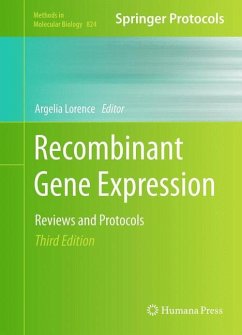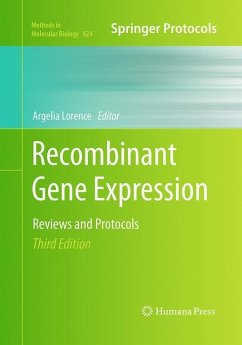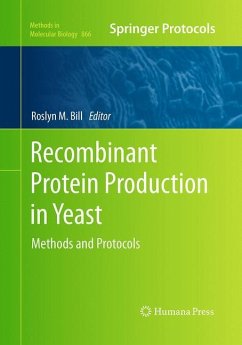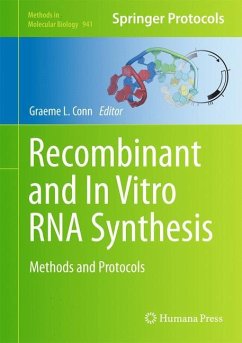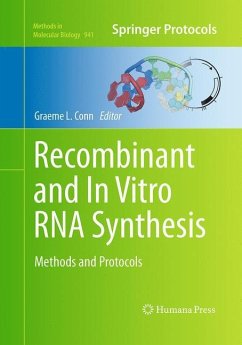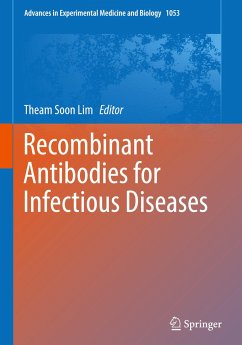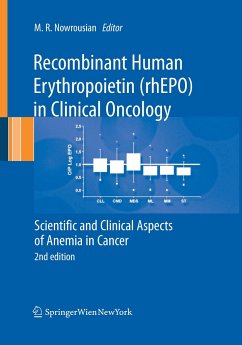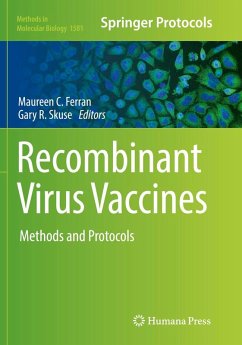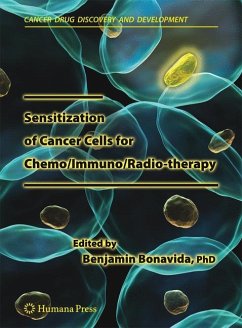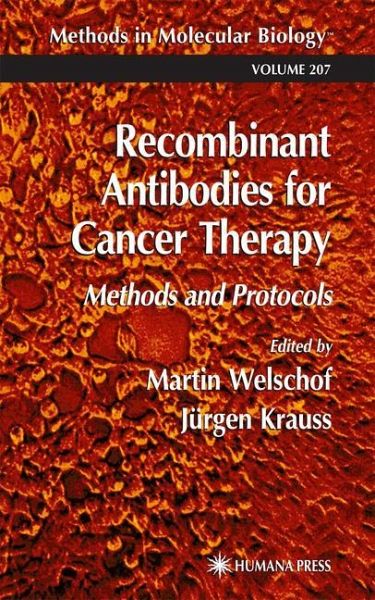
Recombinant Antibodies for Cancer Therapy
Methods and Protocols
Herausgegeben: Welschof, Martin; Krauss, Jürgen
Versandkostenfrei!
Versandfertig in 6-10 Tagen
83,99 €
inkl. MwSt.

PAYBACK Punkte
42 °P sammeln!
Since the advent of hybridoma technology more than two decades ago, numerous antibodies have entered the clinical setting as potent therapeutic agents. Their repeated application in humans, however, is limited by the development of human antimouse antibodies (HAMA) in the recipient, leading to allergic re- tions against the foreign murine protein and rapid neutralization. To circumvent these limitations many new antibodies have recently been tailored through recombinant antibody technology. The initial clinical data show encouraging results, thus demonstrating the potential of these new therap...
Since the advent of hybridoma technology more than two decades ago, numerous antibodies have entered the clinical setting as potent therapeutic agents. Their repeated application in humans, however, is limited by the development of human antimouse antibodies (HAMA) in the recipient, leading to allergic re- tions against the foreign murine protein and rapid neutralization. To circumvent these limitations many new antibodies have recently been tailored through recombinant antibody technology. The initial clinical data show encouraging results, thus demonstrating the potential of these new therapeutic agents. The purpose of Recombinant Antibodies for Cancer Therapy is to present a collection of detailed protocols in recombinant antibody technology. It is pri- rily addressed to scientists working on recombinant antibodies as well as cli- cians involved with antibody-based therapies. As with other volumes of this series, we placed the main focus on providing detailed protocols describing procedures step-by-step. Moreover, each protocol supplies a troubleshooting guide containing detailed information on possible problems and hints for pot- tial solutions. Antibody technology is a subject of constant and rapid change. This volume, therefore, does not attempt to cover all possible current experimental approaches in the field. Rather, we present carefully selected protocols, written by competent authors who have successfully verified the particular method described. Given our own professional backgrounds and interest in oncology, we chose to conc- trate chiefly on therapeutic agents for cancer patients.






